On the edge: Ukraine’s permanent state of siege
British artist and photographer Mark Neville has been documenting life in Ukraine since 2015.
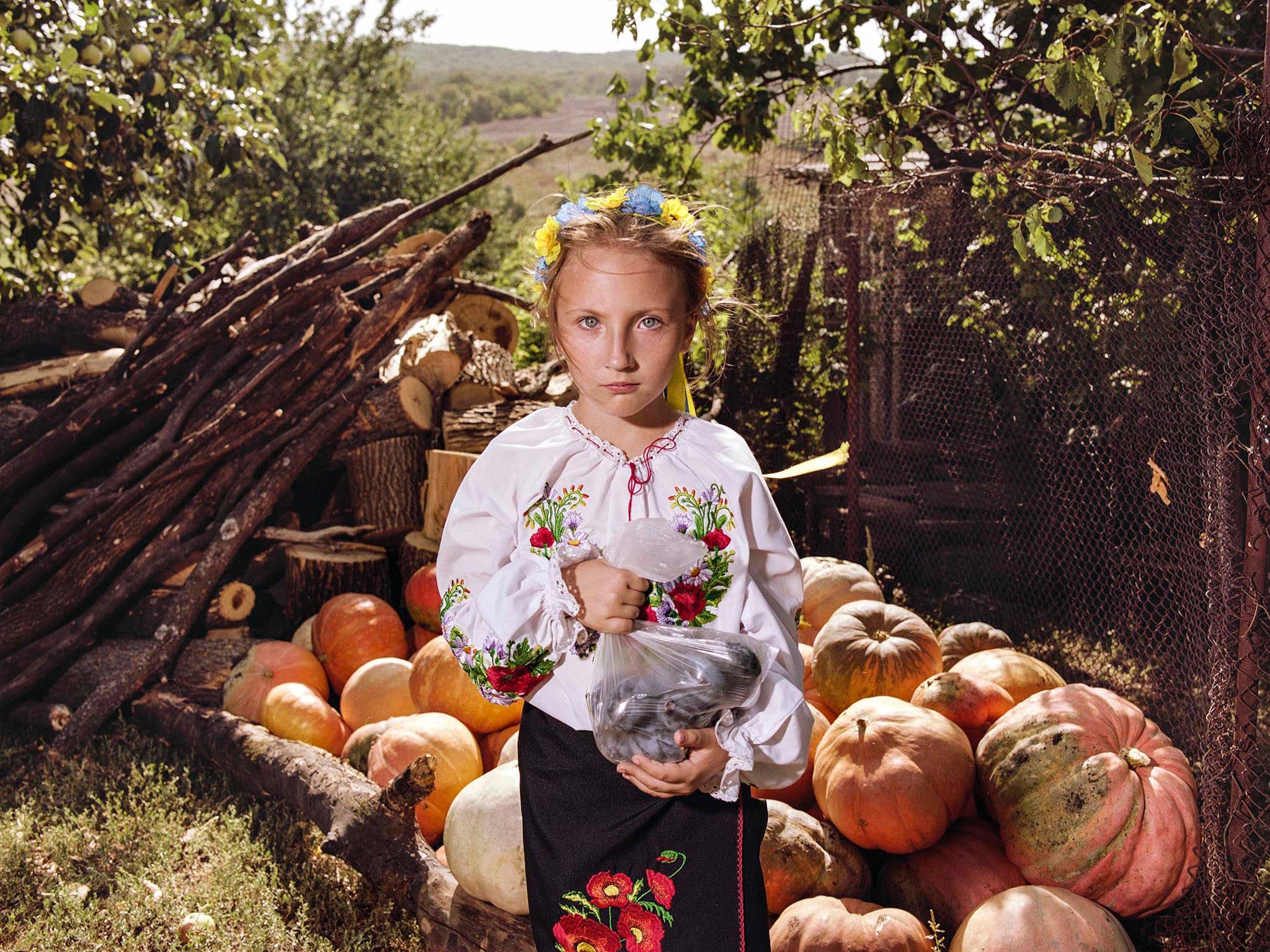
Your support helps us to tell the story
From reproductive rights to climate change to Big Tech, The Independent is on the ground when the story is developing. Whether it's investigating the financials of Elon Musk's pro-Trump PAC or producing our latest documentary, 'The A Word', which shines a light on the American women fighting for reproductive rights, we know how important it is to parse out the facts from the messaging.
At such a critical moment in US history, we need reporters on the ground. Your donation allows us to keep sending journalists to speak to both sides of the story.
The Independent is trusted by Americans across the entire political spectrum. And unlike many other quality news outlets, we choose not to lock Americans out of our reporting and analysis with paywalls. We believe quality journalism should be available to everyone, paid for by those who can afford it.
Your support makes all the difference.His focus has been on a diverse range of subjects, from model holiday makers on the sunny beaches of Odessa, to those living on the frontline in Eastern Ukraine.
By making the country his home, Mark Neville has fully immersed himself into Ukrainian culture and provides a unique insight into the global conflict now threatening the region.
He says: “In order for me to realise this project, I needed to understand how it feels to call Ukraine my home, to live at the geographic centre of Europe, and feel war rumbling away on one’s borders as a daily reality.”
“I understand how this threat has devastated the whole country, and how deeply unsettled people feel.”
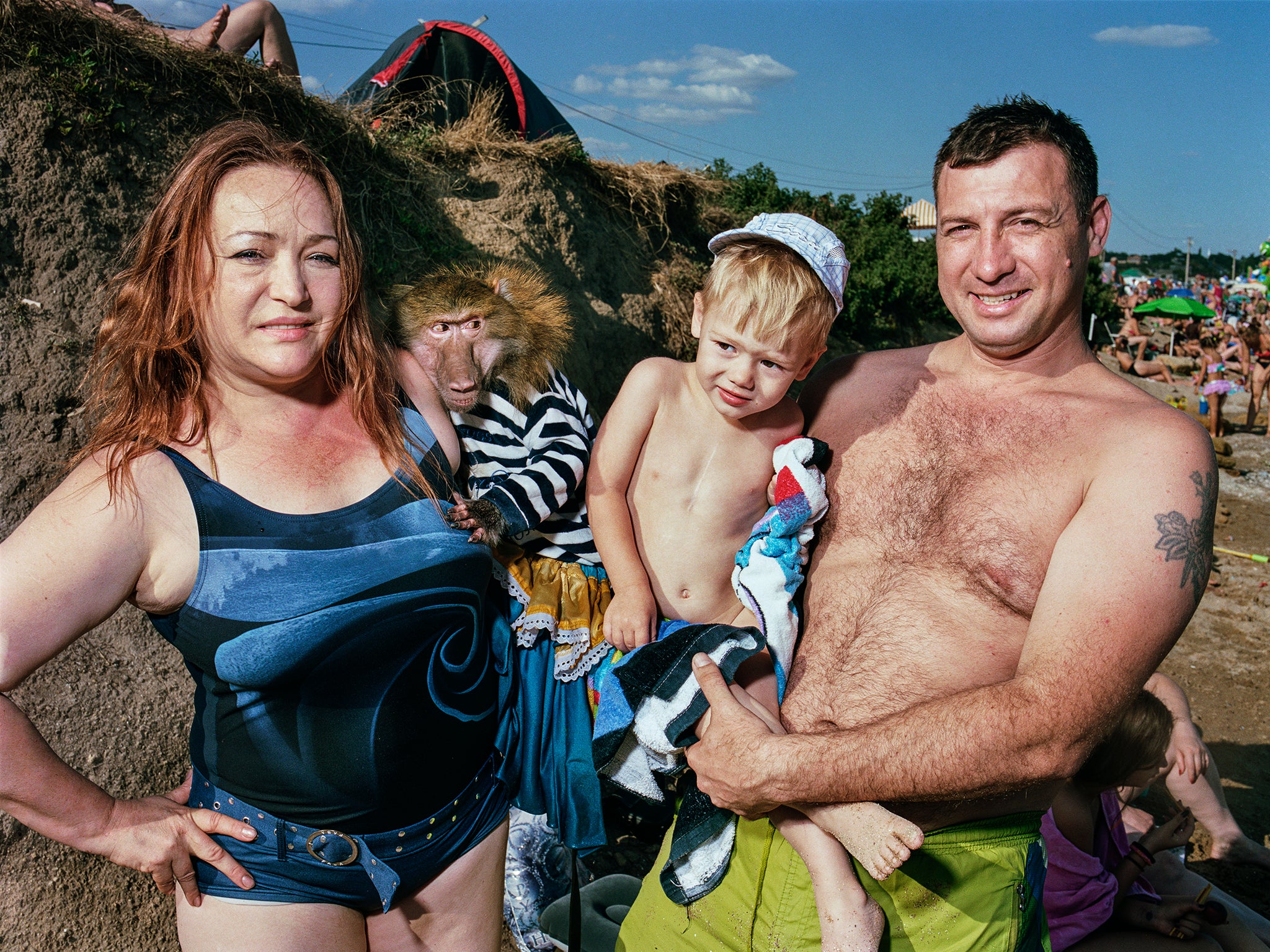
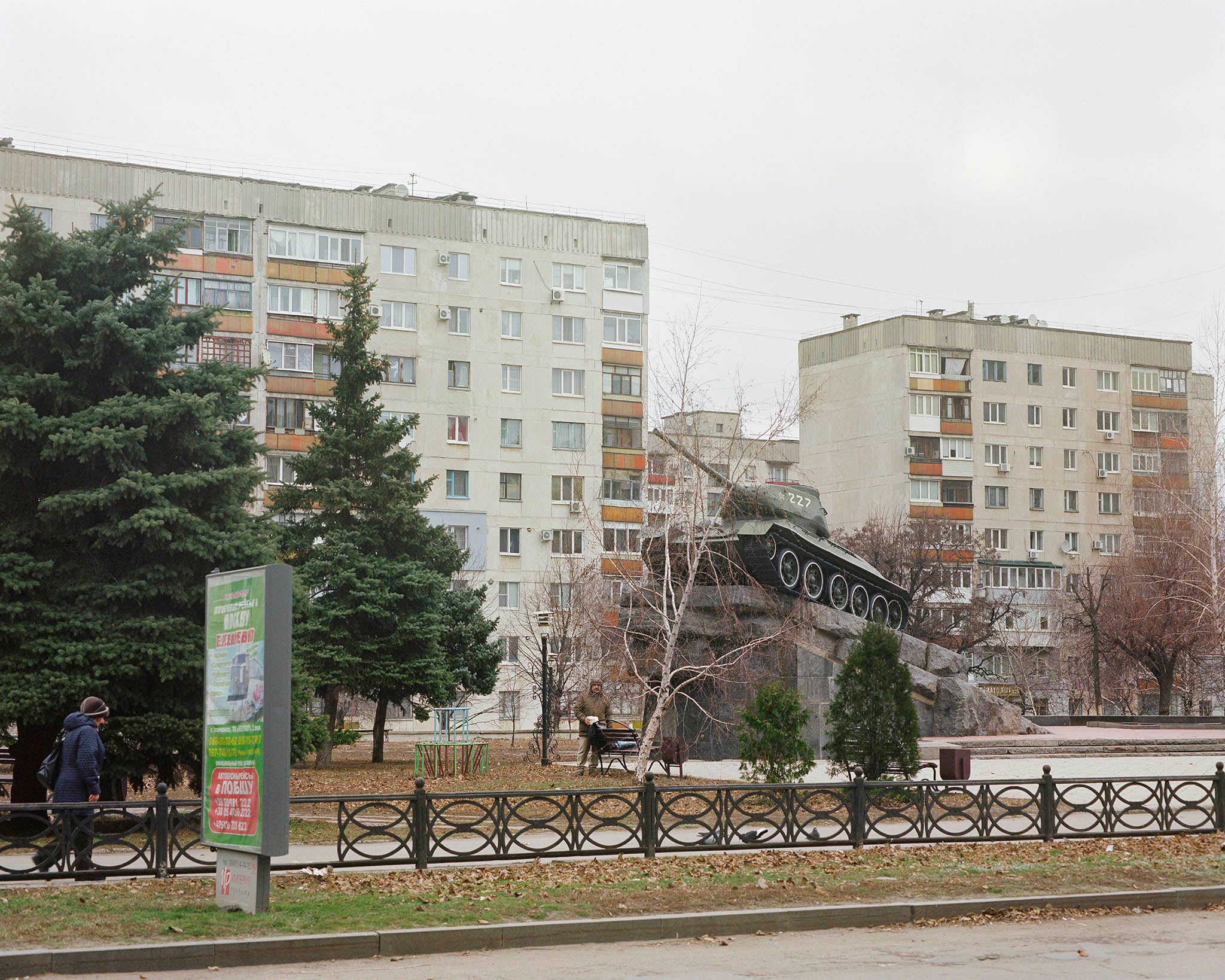
His new book called Stop Tanks with Books is a call to action for world leaders as the possibility of global conflict with Russia edges closer, and the international community holds its breath.
Neville’s activist strategy involves a targeted book dissemination. He has released 750 copies of his new photography book to politicians, media members and policy makers in a plea to end the war.
Russia is facing international pressure after amassing a military force of more than 100,000 troops on the Ukraine border, in what has been called “the largest mobilisation” in Europe for decades.
Russia ascertains that Western power’s discussions on the threat of war are provocative. Russian ambassador Vasily Nebenzia said in a recent meeting: “You are almost calling for this, you want it to happen”.
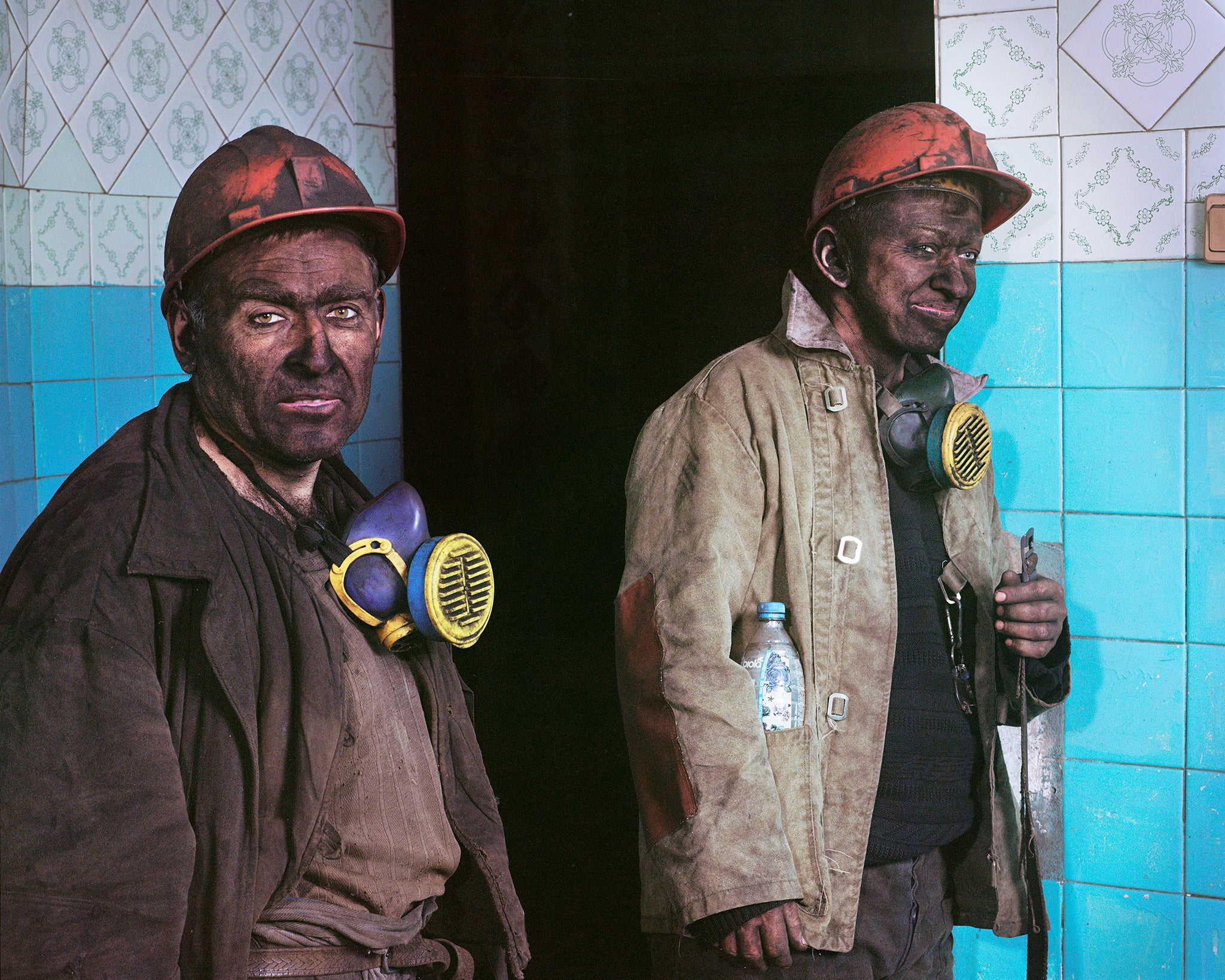
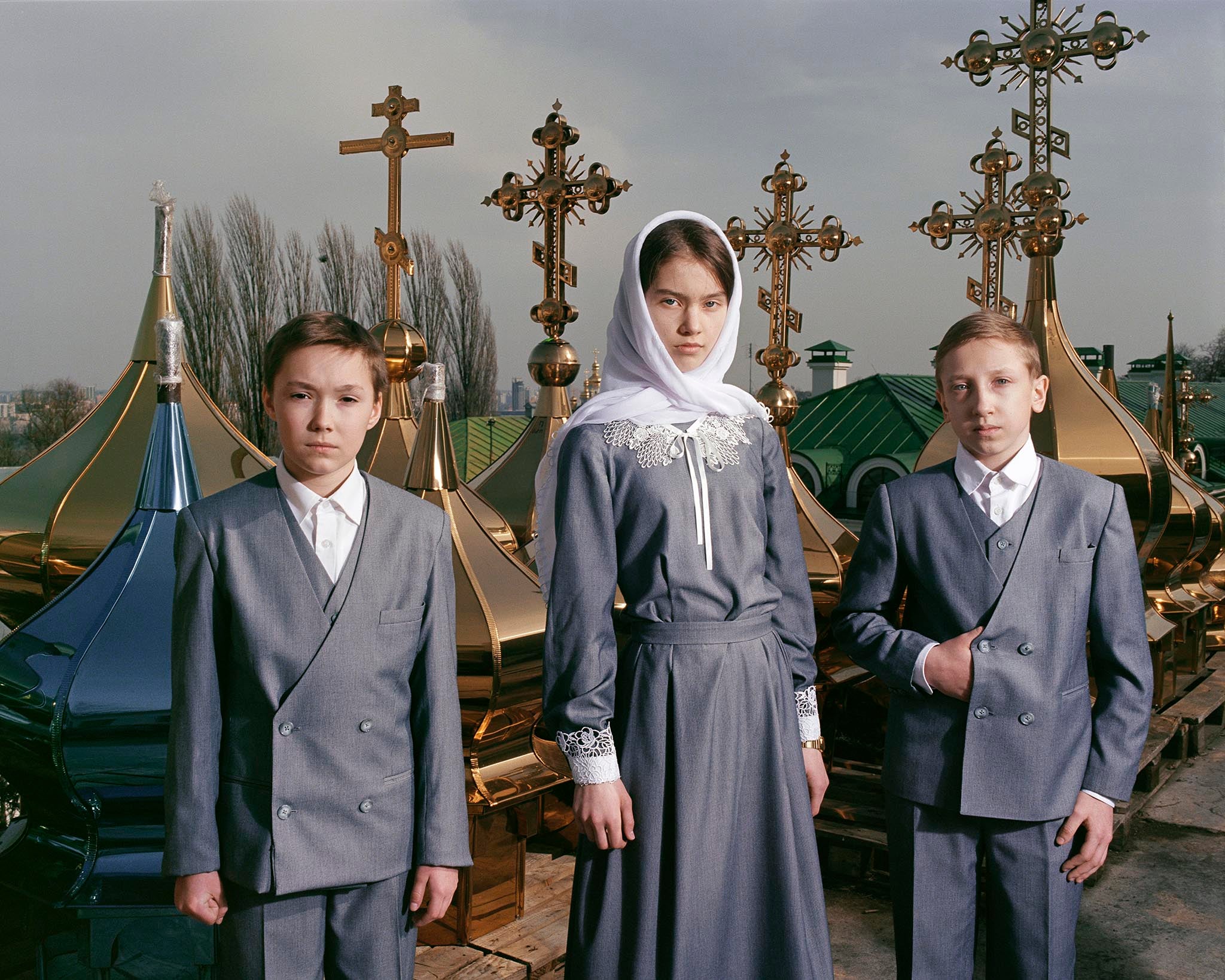
Meanwhile, Ukraine’s President, Volodymyr Zelensky, has led a drive to increase their armed forces and restore confidence by 100,000 troops. The tourism board is encouraging visitors to “Keep calm and visit Ukraine”, despite the looming threat of a Russian invasion.
But things are far from calm, and Ukraine has been dealing with Russian aggression long before this escalation hit global headlines.
According to the UN, more than two million people have been forced to flee their homes since fighting in the far east of the country began in 2014. But many believe this number has risen dramatically.
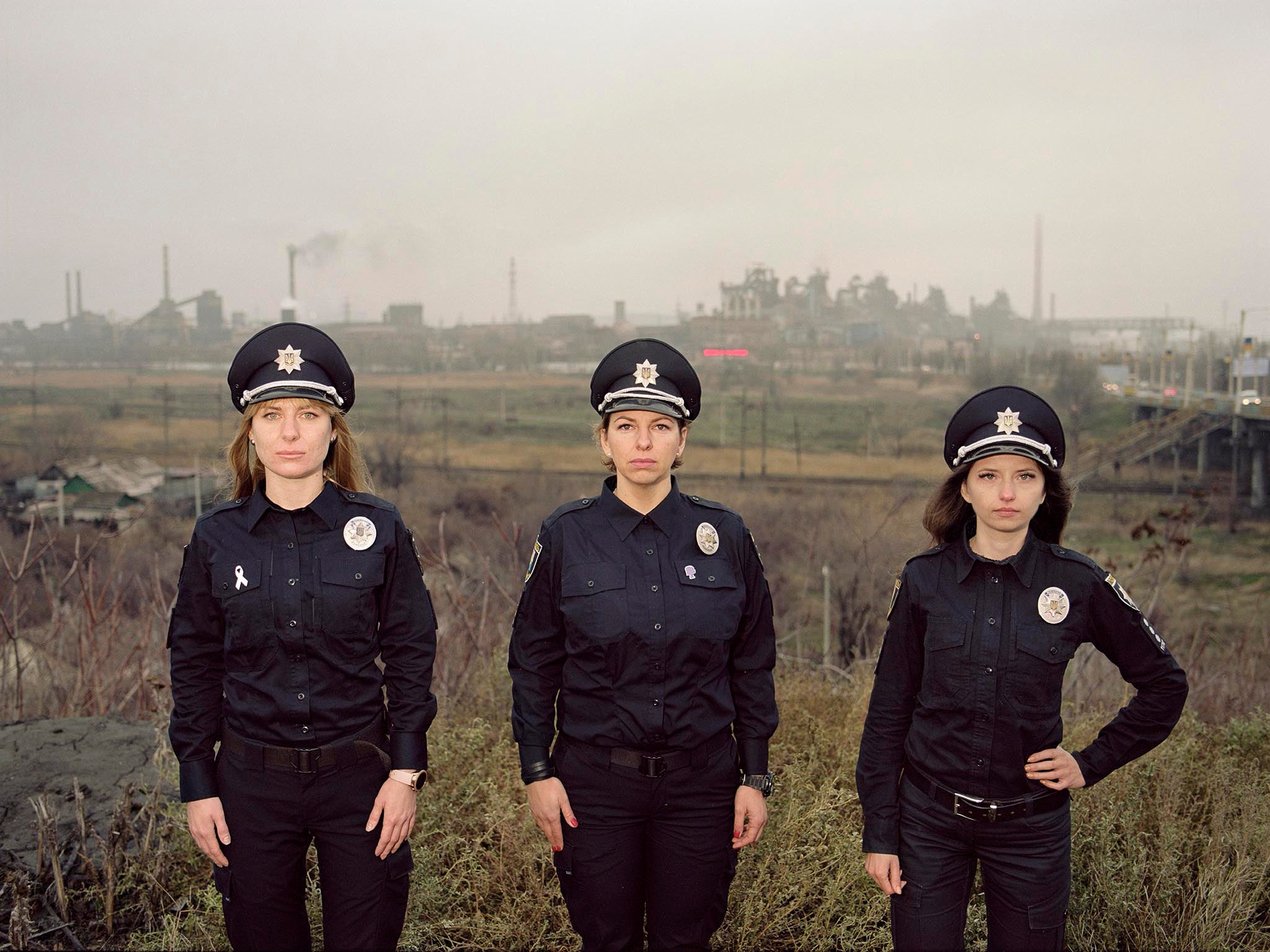
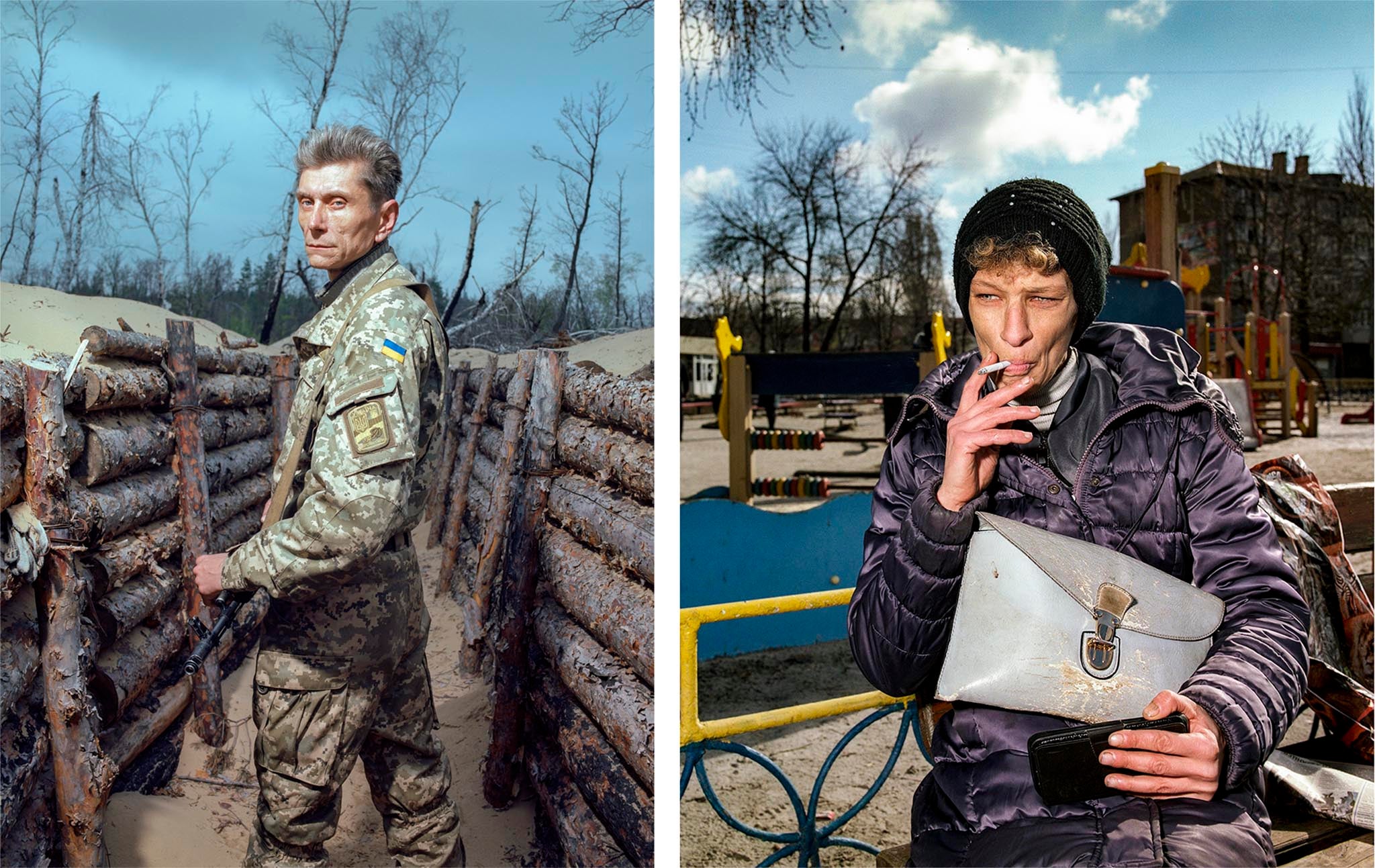
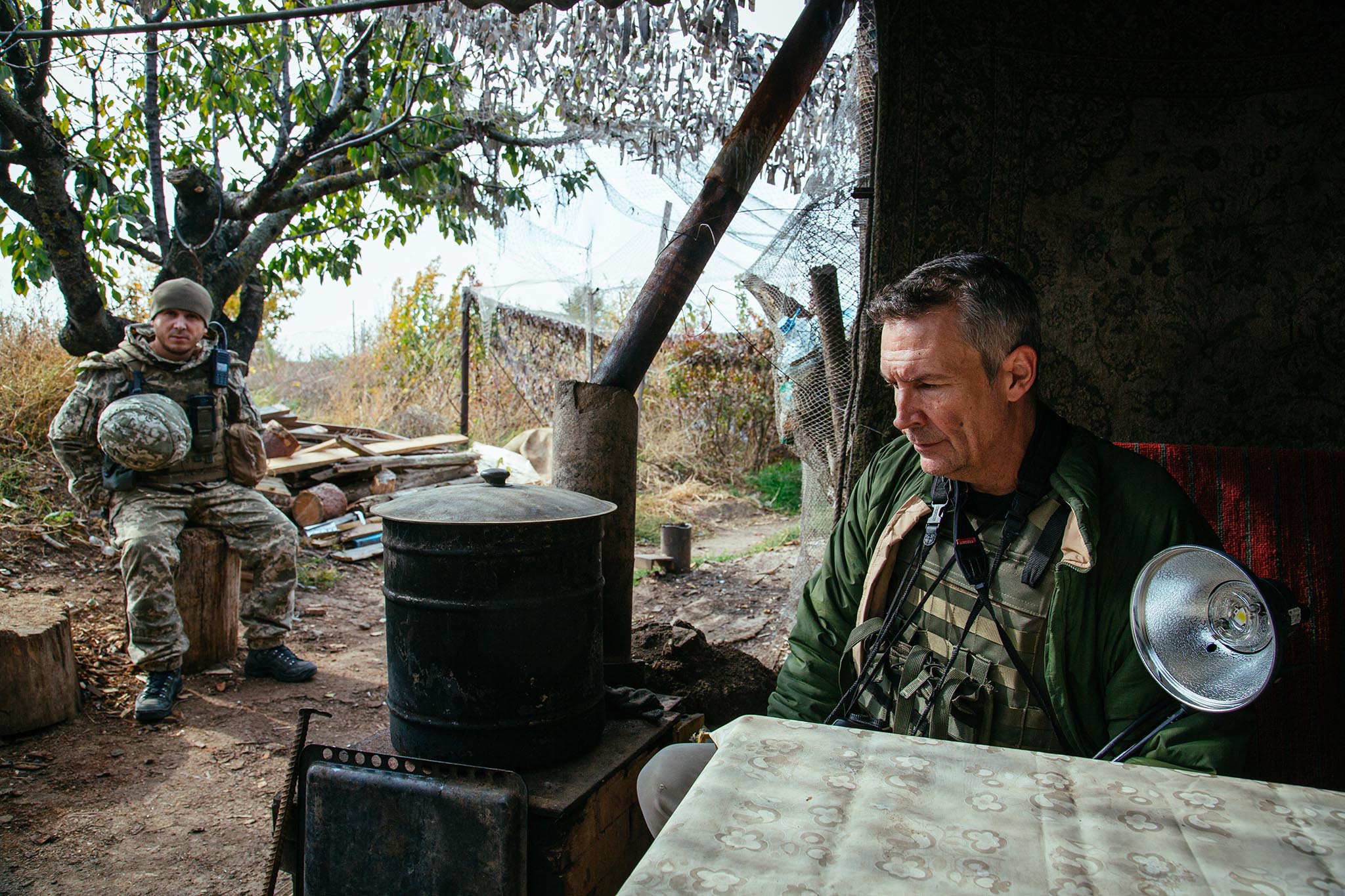
There are currently 3.5 million people in need of humanitarian aid in Ukraine as a result of the conflict, the UN says.
Neville has personally seen the plight of those who have been forced to leave their homes and witnessed their resilience in the face of growing unrest.
He says: “I interviewed countless families who had been forced to flee their homes in Donbas, who had witnessed and experienced unimaginable horror, and who literally had nothing left; no possessions, no security, no income, no pension, and no hope.”
Neville powerfully describes the “extremely tense” situation on the ground in Ukraine at the beginning of the year.
“Everyone here is discussing what to do if the conflict reaches Kyiv. Do we stay and fight? Do we leave for Western Ukraine? Or do we flee Ukraine completely?
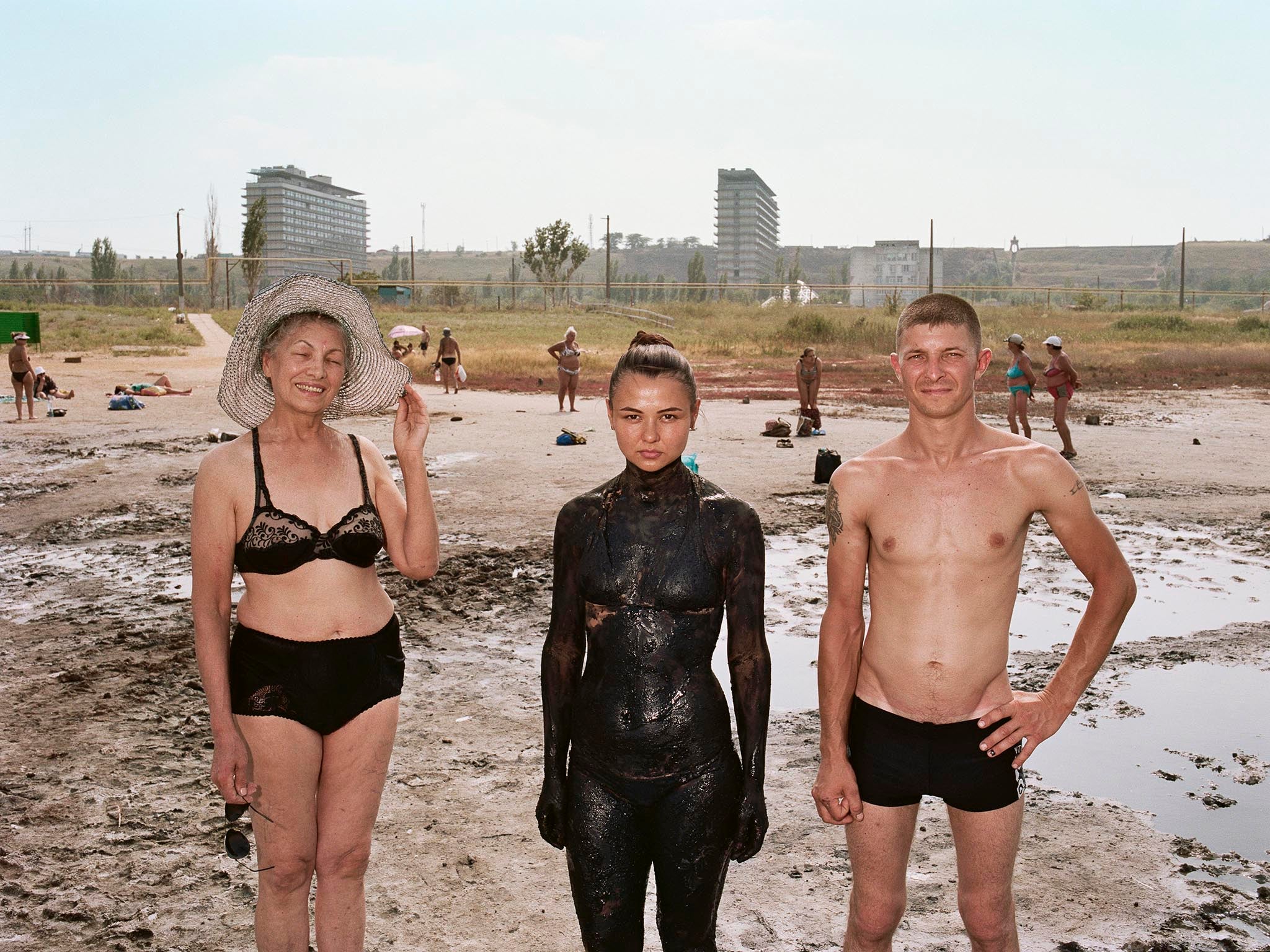
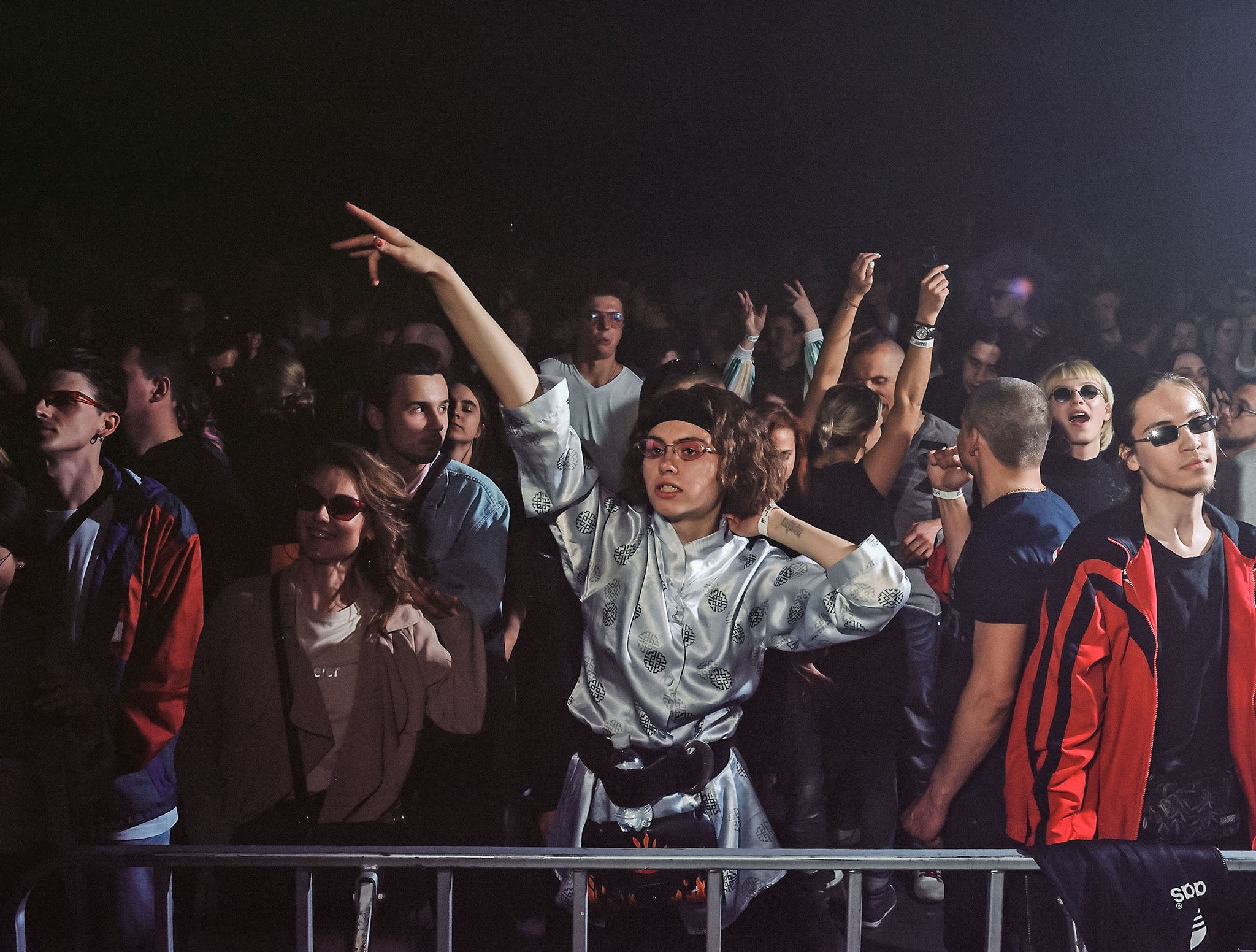
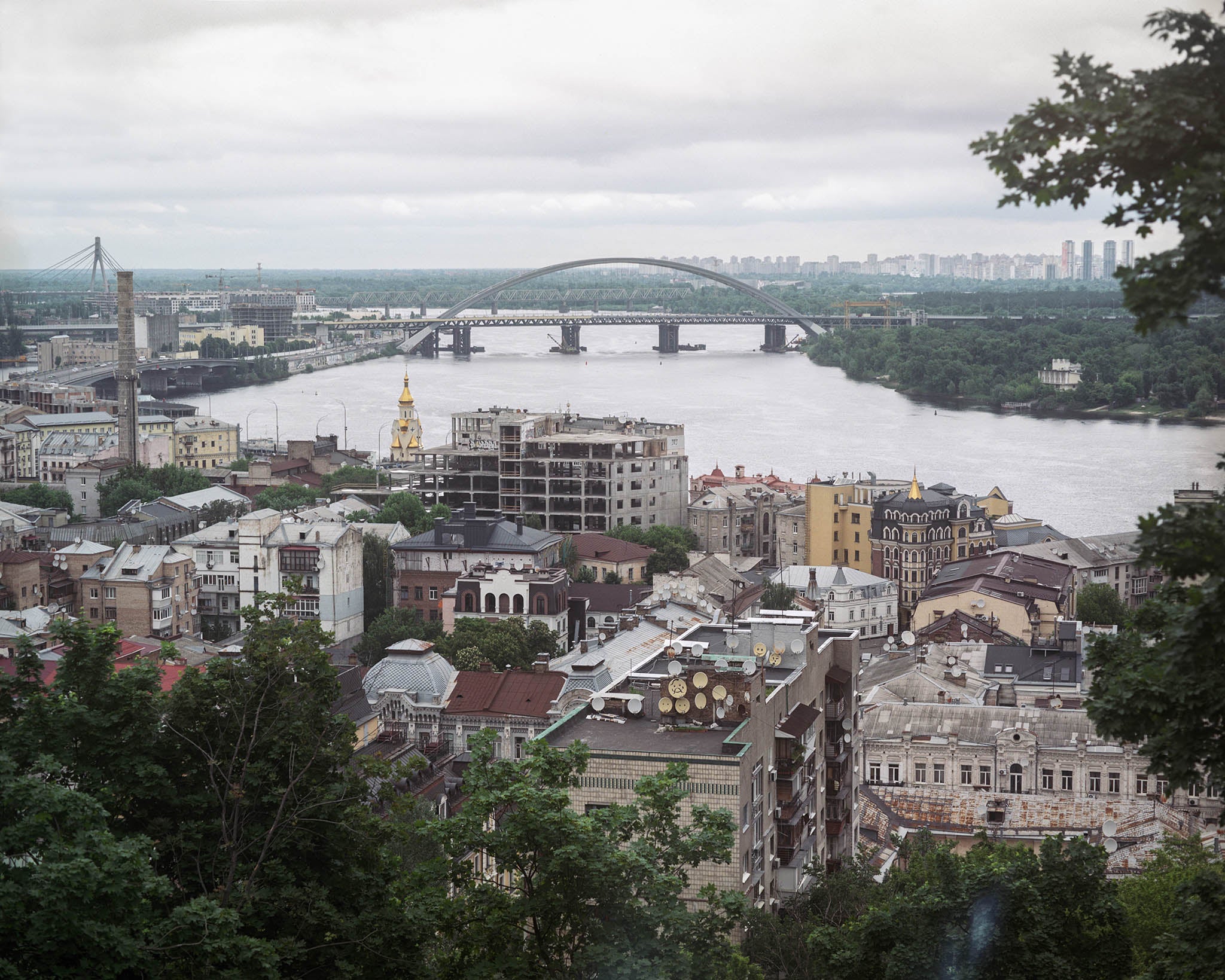
“I wonder what the international response would be if Stockholm, London, Paris, or New York were threatened with an unprovoked and imminent invasion by Russia? Last year Ukraine celebrated 30 years of independence, and yet the fight for that independence continues.”
Looking through Neville’s photographs, you get a poignant sense of a people who live on the edge of everything. Of war, poverty, and democracy. Being in this constant state of siege is something Neville hopes to portray in his photographs.
Neville says: “Mental health issues amongst the population of Donbas region have risen exponentially due to the incredible stress and pressure of living on the frontline of a war.”
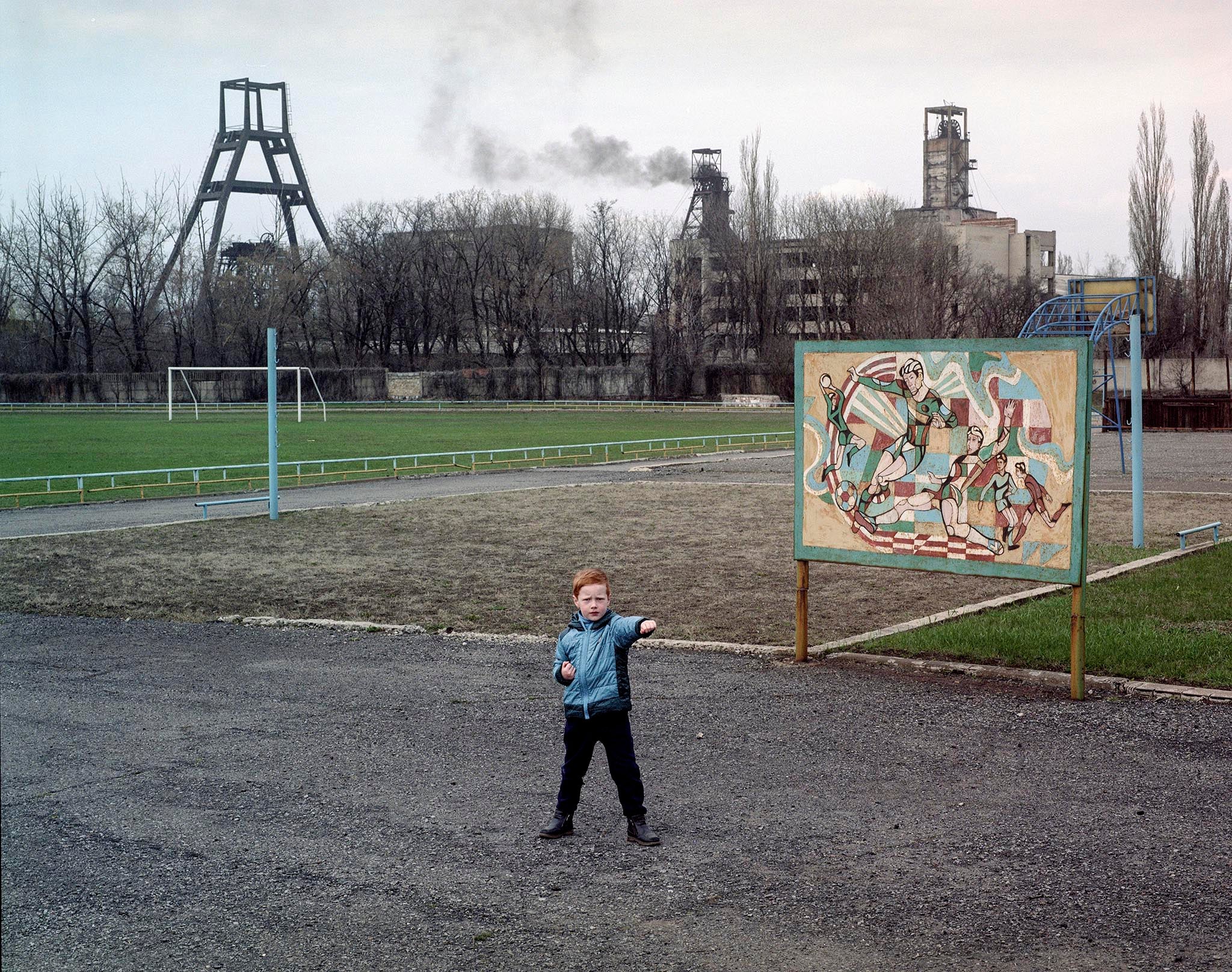
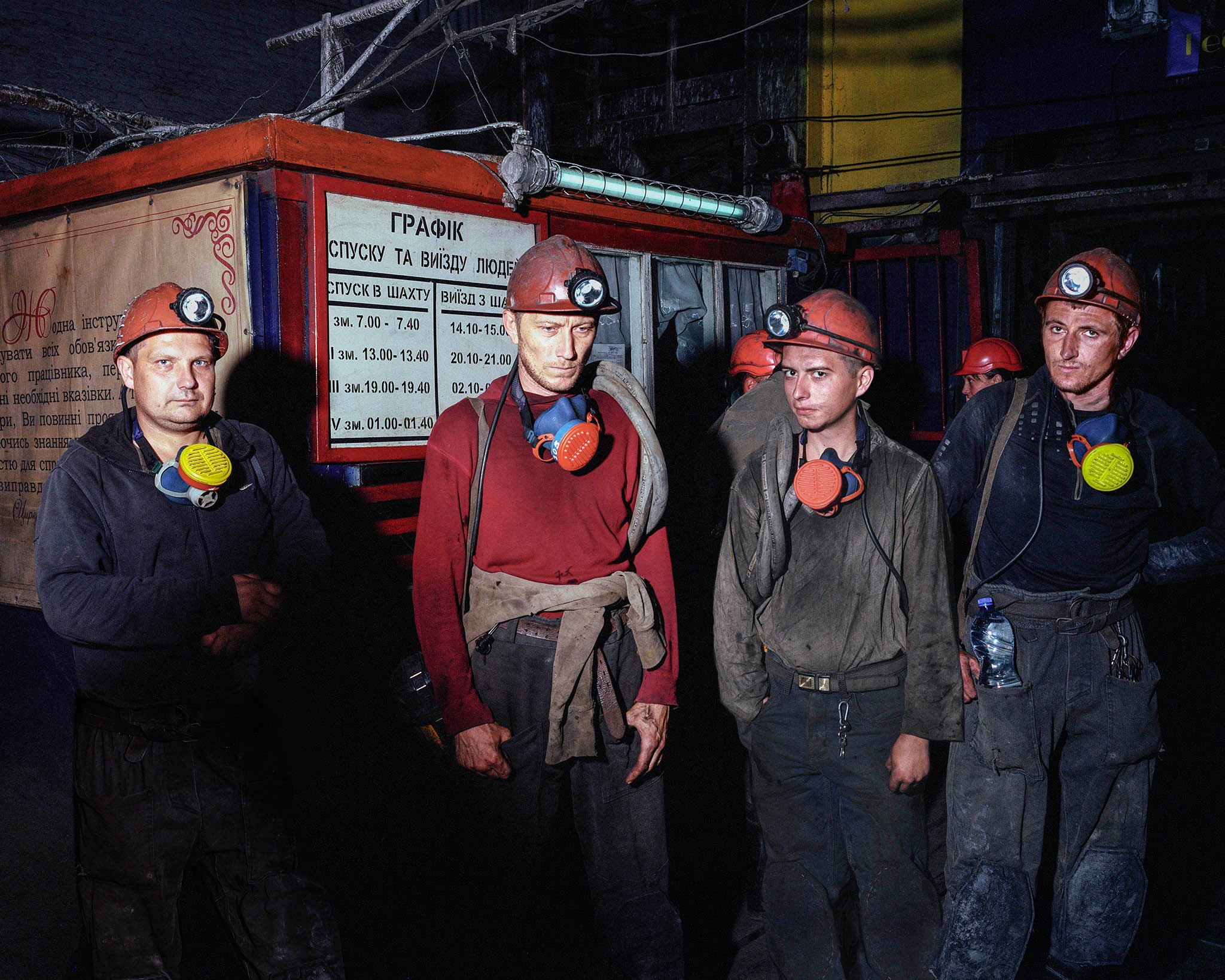
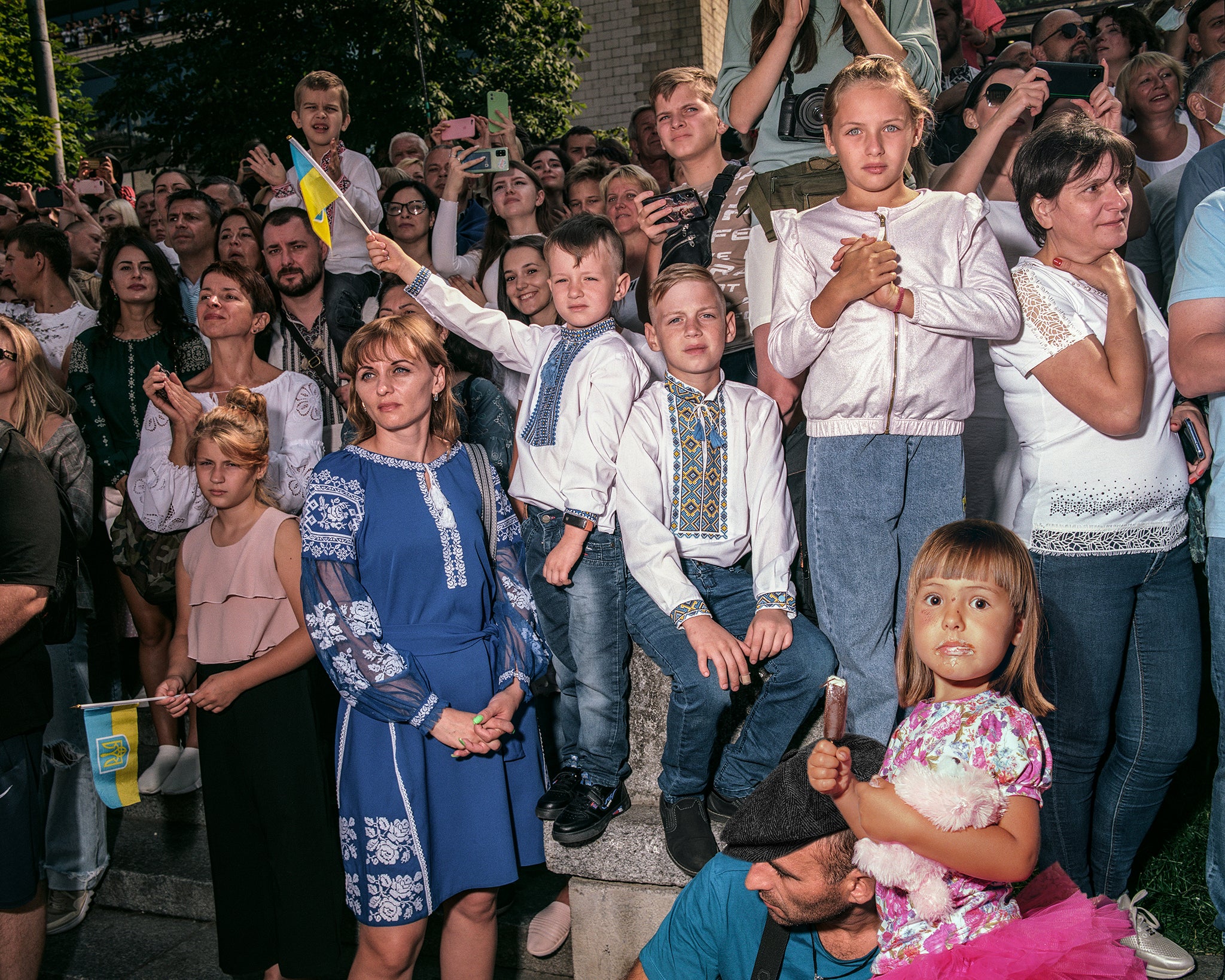
While also providing first-hand experiences and snapshots of the situation on the ground, Neville hopes his book will galvanise the international community to further humanitarian efforts.
The book acts as a plea for media and the international community to stop ignoring the displacement of Ukrainians in the disputed lands bordering Russian territory.
Neville says in his introduction: “The aim is for recipients of this book to be prompted into real action which will result in an end to the war, an end to the killing in Eastern Ukraine, and the withdrawal of Russian forces from occupied territories in Donbas and Crimea.”
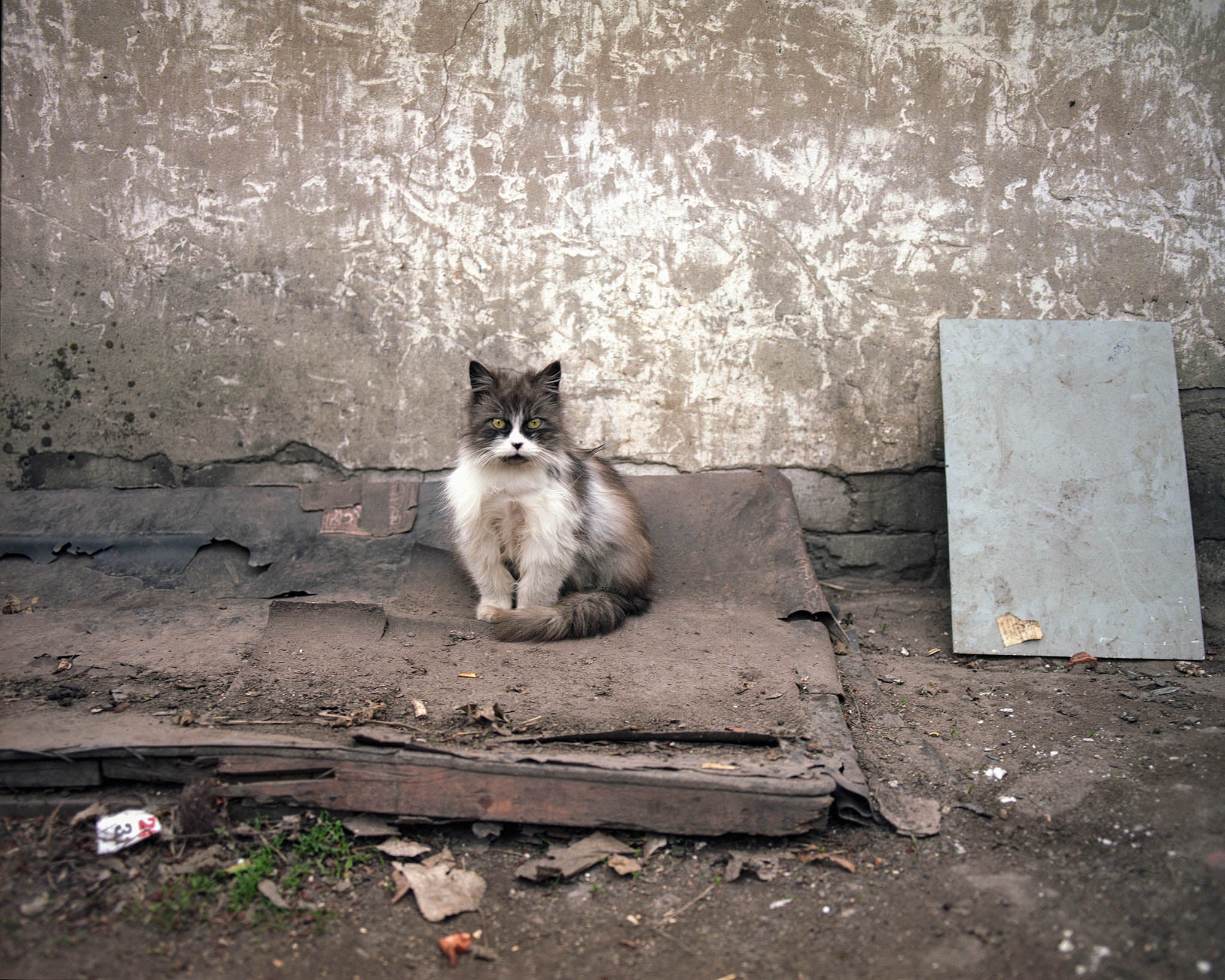
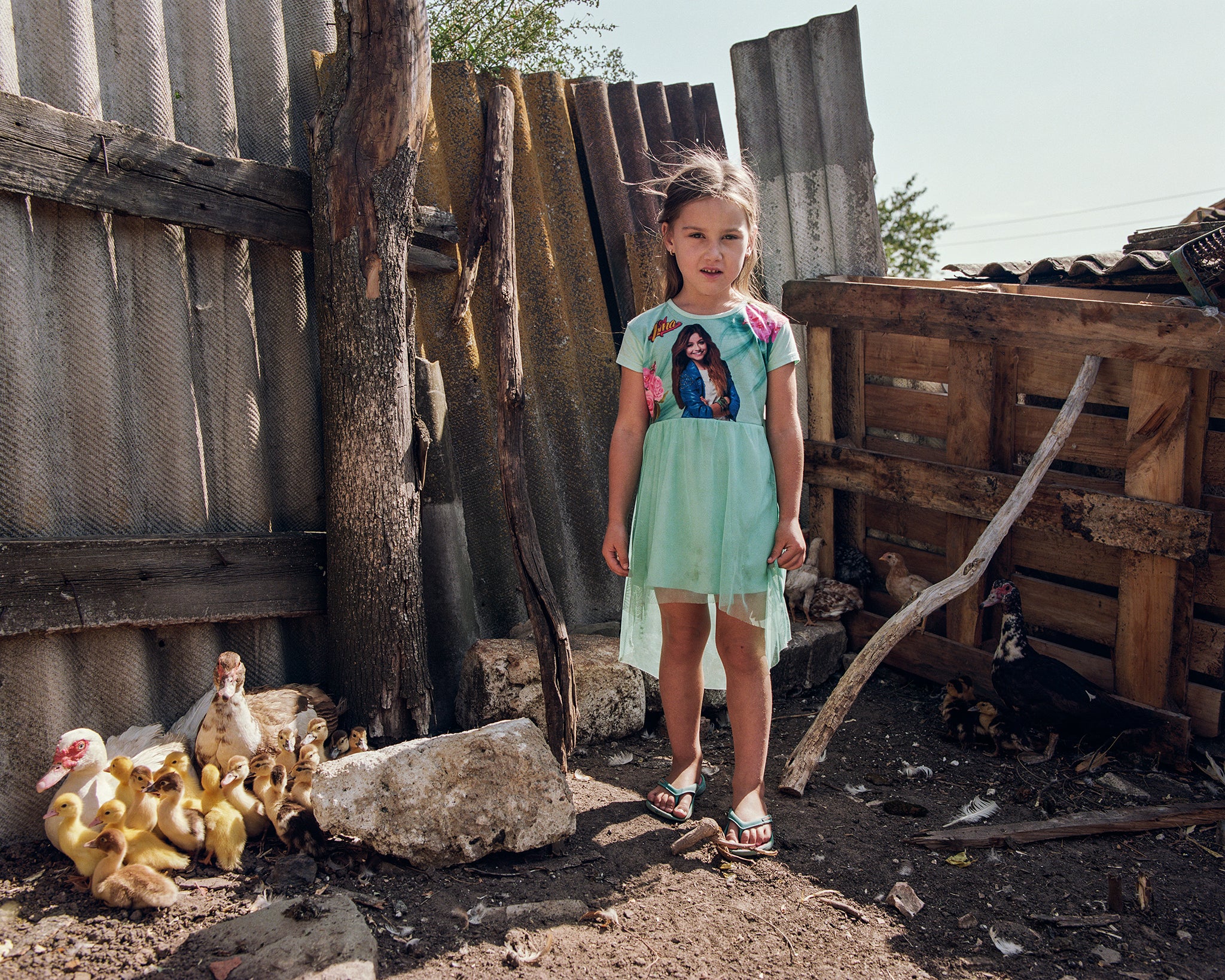
Though everything hangs in the balance, Neville’s work also demonstrates the passion he has for Ukraine and their people, and his view that a peaceful solution must be achievable.
“The greatest threat to Putin’s ambitions is an independent, free, democratic and thriving Ukraine on his doorstep,” Neville says.
“Ukrainians made a democratic decision over 30 years ago to forge for themselves a free nation.”
Mark Neville’s book is now available to buy at Setanta Books.
Join our commenting forum
Join thought-provoking conversations, follow other Independent readers and see their replies
Comments